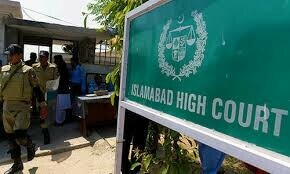ISLAMABAD: Rural women working in agricultural fields are the largest contributors to informal economy, but they are not acknowledged, counted and protected.
Rural women have the same rights as that of working women in cities, but there is no recognition for their contribution.
This was stated by Federal Ombudsperson for Protection against Harassment Kashmala Tariq in a statement at the launch of a study on the rights of women agricultural workers organised by Awaz-CDS Pakistan.
Kashmala Tariq said there was a strong need to implement laws already in place for women agricultural workers’ rights as they often earned less than men and were deprived of basic rights and protection. She stressed the need for creating awareness among women agricultural workers through mass media and effective role of local governments in addressing their issues.
The study titled, ‘The Hands That Feed Us: Struggles of Women Agricultural Workers in Pakistan’ was conducted by Awaz-CDS Pakistan in collaboration with Forum Asia and Bread for the World in the aftermath of Covid-19 pandemic.
Chief Executive Awaz-CDS Pakistan Ziaur Rehman highlighted that women agricultural workers often earned less than 50pc of the men wages.
“Women agricultural workers traditionally face malnutrition, discrimination, violence and ill-treatment by their partners, including exploitation and sexual harassment. Most of them are married at an early age and forced to work in fields on behalf of in-laws as bonded labourers,” he said.
Highlighting the need to carry out the study, he said: “There are several women empowerment studies but limited research is available on the measurement of empowerment in the agricultural context. Therefore, it was decided to carry out a study to assess, identify and articulate the contributing factors associated with socio-economic, legal, gender and political empowerment of WAW in Sindh and Punjab provinces.”
The study findings suggested appropriate measures and recommendations to address identified policy and practice level gaps.
Former convener Parliamentary Committee on Agriculture and chairperson Common Wealth Women Parliamentary Forum Shandana Gulzar said the rights of rural women workers were not an issue of social welfare, but of basic human rights.
Head of SDG Programme of Hashoo Foundation Mahwish Afridi said there was a need to empower women agricultural workers by imparting them with required technical skills to make linkages with the market.
Published in Dawn, December 25th, 2022











































Dear visitor, the comments section is undergoing an overhaul and will return soon.